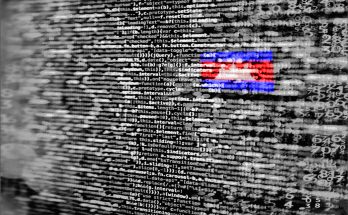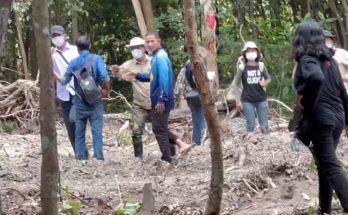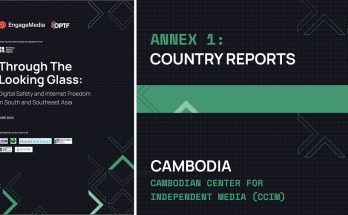Cambodian civil society and Internet users in March drafted a Great Charter of Cambodian Internet Freedom (GCCIF) based on inputs from stakeholder groups including youth, bloggers, social media activists, local and international NGOs, businesses, telecoms and news media. The charter is currently available for public comments on www.netlawkh.org, a Wiki-style website that allows users to edit and contribute to the law, ensuring a final draft reflects the needs and interests of Cambodian internet users. All internet users, social and digital rights activists as well as businesses can propose their ideas of what Internet freedom should look like in Cambodia and what are the protections they want to be guaranteed under law.
“Cambodian Internet penetration is still relatively low, but it is growing rapidly, and the possibilities the Internet presents for expanded freedom of expression have not gone unnoticed by the Cambodian government. Over the past year, we have seen the government take a number of steps to increase their monitoring and control of the Internet, from the creation of the now-scrapped draft Cybercrime Law, to the announcement of plans to install surveillance equipment in ISPs and to create ‘Cyber War Teams’ to monitor social media,” said Amanda King, CCIM Director of Communications.
“The fact that these actions are taking place outside of a legal framework could prove detrimental to the future of Cambodia’s free Internet, and that is why CCIM and a number of other NGOs, businesses and other actors believe that there is a need for a positive-rights framework to protect Internet rights, which is exactly what GCCIF does.”
A recent CCIM study of Internet users, “Perceptions of Online Freedom of Expression and Political Engagement: A study of Internet-connected Cambodians,” funded by Freedom House, found that while the majority of Cambodians currently feel free to express their political opinions online, and are increasingly doing so, 88% of Cambodian mobile Internet users would no longer feel free to do so were the government to act on plans to monitor and control the Internet.
Visit www.netlawkh.org today for more information about how the GCCIF protects Internet rights in a way that is consistent with international best practices or to start contributing your own comments and edits. If you’re unfamiliar with the Wiki editing process, watch this video to learn how.
Cambodian says internet is free but fear of government surveillance, censorship, study finds
Cambodian Internet users overwhelmingly see the country’s Internet as increasingly becoming more accommodating of free expression but remain concerned about the effects of recently proposed government actions related to Internet surveillance and controls, according to the results of a study by the Cambodian Center for Independent Media (CCIM), which surveyed almost 1,000 Cambodian Internet users from 22 provinces.
Almost 76% of Cambodians feel the Internet is becoming increasingly freer. However, 88% of Cambodians say they would not feel free to express their opinions online were the government to begin monitoring and controlling online activity, according to the report.
“The result of the survey clearly shows that online freedom of expression needs to be protected under Cambodian law. Cambodian people are not willing to express opinion online if the government monitor and control online activity.” said CCIM Communications & Advocacy Officer So Sorthy.
Cambodia does not have any law or legal framework to protect online expression while the government has drafted the Cybercrime Law (which was scrapped) and the announced the creation of the cyber war team and the installment of surveillance on ISP.
“Online freedom of expression needs protection.” Sothy said when he calls for a contribution to the Great Charter of Internet Freedom in Cambodia, a legal framework which was drafted and now open of editing on Netlawkh.org.




